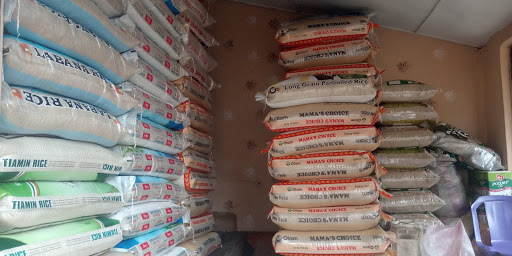
Despite over almost N8 trillion seizures recorded by the Nigeria Customs Service (NCS) annually, there is still a predominance of prohibited goods in Nigerian markets. Investigation by Shipping Position Daily has revealed.
Our correspondent who visited some local markets in Lagos which include: Ikotun, Daleko rice market, Yaba and popular Kantagwa market in Iyana Ipaja observed that prohibited goods such as foreign parboiled rice, bales of foreign used cloths, foreign poultry products are still being smuggled into the country and sold in open markets including supermarkets in the country.
Also worrisome is the influx of fake and expired drugs into the country. Recall that the Federal Operations Unit Zone ‘A’, Ikeja, had earlier this month handed over 41 container loads of expired drugs valued at over N1.42 billion to officials of the National Agency for Food and Drug Administration and Control (NAFDAC), for destruction.
This is aside from the N694.5 million worth of goods that the unit seized in March 2023 alone. Addressing journalists, the Acting Controller of the Federal Operations Unit, Zone A, Ikeja, Hussein Kehinde Ejibunu said the drugs, which expired in November 2021, would have found their way into the open market, but for the reworked strategy that he implemented.
Ejibunu had stated that all the prohibited foreign-made goods were smuggled into the country, through unapproved routes on motorcycles and wooden boats via the Nigerian borders of Seme and Idiroko in Lagos and Ogun states.
Similarly, the Controller of the Western Marine Command of the Service, Uduadu Salefu, said his command recorded a seizure of N110.2 million worth of goods that were being ferried into the country through the inland waterways.
He said among the 15 items seized were bleaching creams, 8,825 litres of petrol, 50 pairs of used tyres, 1,519 bags of rice and several parcels of seeds suspected to be Indian hemp.

Our correspondent observed that despite the high cost of foreign-made goods as compared to goods produced in Nigeria, many Nigerians still desire to buy the imported items.
Recall that a few years ago, a bag of 50kg rice was sold at between N7000 and N9000, depending on the brand and quality. Right now, the same bag of rice is sold for between N35,000 and N40,000. In spite of the cost many Nigerians still prefer to buy the foreign parboiled rice instead of the locally produced rice.
Checks by our correspondent also revealed that a total of about N1.45 trillion worth of goods were smuggled into Nigeria annually from Benin Republic, this is according to a report by the Nigeria Export Processing Zones Authority (NEPZA).
Reacting to why there’s an influx of foreign prohibited products in the open markets, the National Secretary of the Association of Nigerian Licensed Customs Agents ANLCA, Mr. Babatunde Mukaila, said there’s need for government to reappraise the ban on some of the the prohibited products, even as he also confirmed that prohibited items still find their way to the markets.
He said the failure of the federal government to lift the ban on some of these products has helped enrich some Customs officers who look away to allow these products to come in.
He said: “The government policy on prohibited items, the 41 items restricted to forex need to be re-appraised, because you can’t hold people’s hands, lock them in a room and go away with the key, at the end of the day they will find a way out of that entrapment.
“So, the government needs to review this policy because it does not really work, because all the items prohibited are on the shelf in the open market, so why not make it a duty payable item instead of enriching Customs personnel who look the other way to allow these products to come in.
“Secondly, the NCS will need to have a whole lot of transparency, in the processes and clearance of cargo; it’s too cumbersome there is no clear structure, every officer is territorial even to the ordinary gateman of the Customs, he is accountable only to himself and when the senior officers are corrupt, you don’t expect them to correct the junior ranks, so we need transparency and predictability for people to know that if I am bringing in a particular product, this is what I am paying.
“There shouldn’t be surprises all these have led to why many importers cut corners, because when you do the right thing, you won’t be able to compete in the market and that’s why many have decided to cut corners so that at the end of the day, the total cost will come to a manageable level”.
On his part, a freight forwarder and former member of the Council for the Regulations of Freight Forwarding in Nigeria (CRFFN) consultative forum, Mr. Chidi Anthony Opara opined that there is an influx of foreign prohibited goods, because local producers of the referenced goods produce little or nothing, thereby making the people to rely on the foreign goods being smuggled into the country.
He also said the country has many land borders which are not adequately policed at the moment, through which many of the prohibited foreign goods come in.
He however, urged the Customs to modernize its anti-smuggling activities through the retraining of personnel in line with global anti-smuggling strategies and the deployment of sophisticated anti-smuggling equipment.
“The Nigeria Customs Service should modernize their anti-smuggling activities through retraining of personnel in line with global anti-smuggling strategies and the deployment of sophisticated anti-smuggling equipment”, he stated.
Follow us on Facebook/ twitter















